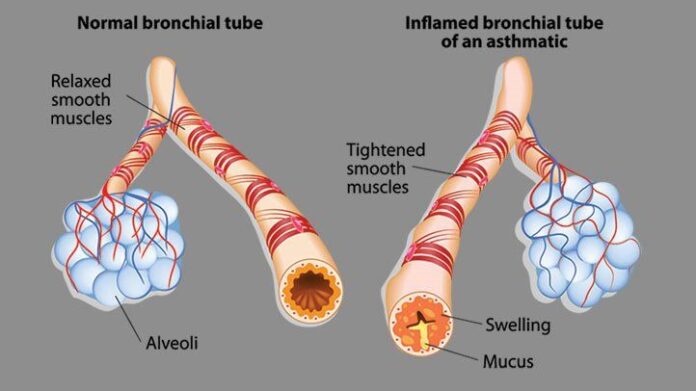How Does Asthma Affect The Respiratory System?
There are many different ways that asthma can affect the respiratory system. For example, asthma can cause the airways to narrow, making it difficult to breathe. This can lead to shortness of breath, wheezing, and coughing. Asthma can also cause mucus to build up in the lungs, which can further contribute to difficulty breathing. How Does Asthma Affect The Respiratory System? In severe cases, asthma can even cause the lungs to collapse.
Thankfully, there are many different treatments available that can help manage asthma and keep symptoms under control. If you or someone you know has asthma, be sure to talk to a doctor about the best way to manage it.
Asthma is a chronic lung condition that causes narrowing and inflammation of the airways. This can make it difficult to breathe and can lead to episodes of wheezing, coughing, and chest tightness.
Asthma affects the respiratory system by making it difficult to move air in and out of the lungs. The inflammation caused by asthma can also lead to mucus buildup, which can further block the airways. Asthma attacks can be triggered by exposure to allergens or irritants, or by physical activity. During an attack, the muscles around the airways tighten, and the airways themselves become narrower due to inflammation. This can cause symptoms such as shortness of breath, wheezing, and coughing.
Asthma Risk Factors
There are many different factors that can contribute to an increased risk of developing asthma. Some of these asthma risk factors include:
- Allergies: People who suffer from allergies are more likely to develop asthma. Allergies can cause inflammation in the airways, which can lead to asthma symptoms.
- Obesity: Being overweight or obese increases the risk of developing asthma. Obesity can cause inflammation in the body, which can trigger asthma symptoms.
- Smoking: Smoking is a major risk factor for developing asthma. Smoke irritates the airways and can cause inflammation, which can lead to asthma symptoms.
- Exposure to environmental triggers: Exposure to certain environmental triggers, such as dust, pollen, or smoke, can increase the risk of developing asthma. These triggers can cause inflammation in the airways, which can lead to asthma symptoms.
- Family history: Having a family member with asthma increases the risk of developing the condition. This may be due to genetic factors or exposure to environmental triggers in early life.
- Age: Children and adults over the age of 65 are at an increased risk of developing asthma. This may be due to changes in the immune system that occur with age.
Can Asthma Be Cured
There is no one definitive answer to this question – medical professionals will usually say that asthma cannot be cured, but it can be managed and controlled through a variety of methods. Some people with asthma may find that their symptoms lessen or go away over time, particularly if they avoid triggers and take medication as prescribed; however, most will still need to take some form of medication on an ongoing basis. Can Asthma Be Cured, There is currently no cure for asthma, but researchers are constantly working on new treatments and therapies that may one day lead to a cure. In the meantime, people with asthma can manage their condition by working with their healthcare team to develop a treatment plan that works for them. Read More>> The Respiratory System






















